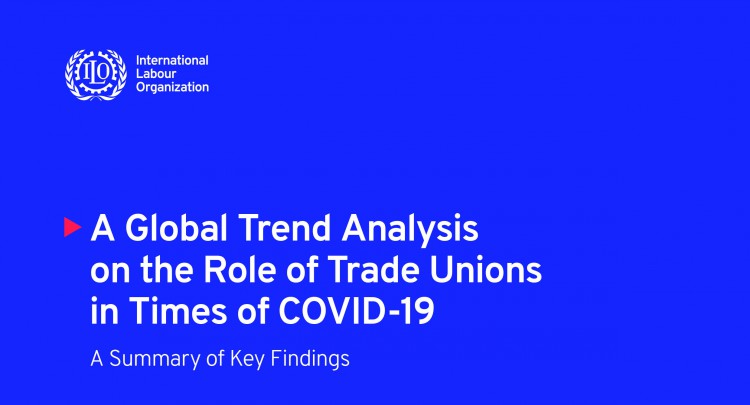Social dialogue remains vital to build a sustainable Post-COVID-19 Recovery
Effective social dialogue and cooperation between governments, employers ‘organizations and workers’ organizations have proved indispensable in designing and implementing appropriate strategies and policies to address the COVID-19 crisis, according to a new study launched by the Bureau of the International Labor Organization for Workers’ Activities for Europe and Central Asia (ILO-ACTRAV).
According to this study, the global analysis of trends on the role of trade unions during the coronavirus pandemic reveals that 108 out of 133 countries, or 81%, used social dialog in response to the pandemic in order to reach consensus on specific protection measures for workers and enterprises. The report also shows that at least one form of social dialog, whether tripartite, bipartite or both, has been used in proportion of 84% in the countries of Europe and Central Asia.
“We are living in an unprecedented crisis. But one thing is obvious: we need to strengthen social dialog to ensure a sustainable, inclusive recovery, in which no one is left behind. Strong, independent, informed and representative trade unions as well as global solidarity are more relevant than ever for realizing the future we want,” says Maria Helena André, director of ILO-ACTRAV.
The findings of the study show that the trade-union process has been severely affected by blockages and restrictive measures. The document highlights an increase in violations of workers and trade unions rights worldwide as a result of measures taken by governments. These violations concern in particular the International Labor Standards, non-compliance with labor regulations regarding dismissals, working hours and pay, and non-compliance with Occupational Safety and Health (OSH) regulations.
As key players in the world of work, trade unions have also made some recommendations to governments and employers’ organizations. Their demands for immediate action included universal health care, unemployment care and family allowances, job and income security, financial support for businesses, compliance with OSH regulations. The medium and long-term recommendations included strengthening social dialogue, expanding social protection, making long-term investments in social services and social assistance, and partially reducing or eliminating all debts.
The report calls on the trade unions to ensure that temporary measures taken in response to the COVID-19 pandemic are a cornerstone for a robust recovery with a medium and long-term perspective, in line with the ILO priorities to respond to the COVID-19 crisis.
In addition, the trade union agenda should aim at contributing to strengthening social dialog mechanisms, increasing representative capacity, continuing to promote workers’ priorities, providing new services, extending partnerships, engaging in UN processes on sustainable development, disseminating information and organizing crisis prevention measures.
To find out more about ILO-ACTRAV’s findings and recommendations on the role of social dialogue and trade unions in overcoming the pandemic crisis, access this link: https://www.ilo.org/actrav/info/pubs/WCMS_767226/lang–en/index.htm
Department of mass-media and international relations



